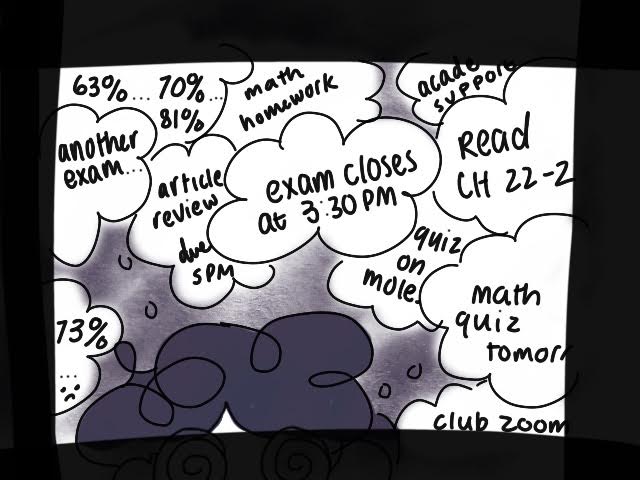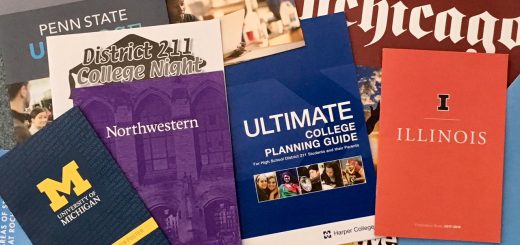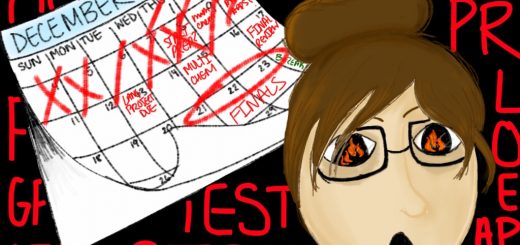Scientifically proven strategies for coping with remote learning stress
 Christiana Kirov | Conant Crier
Christiana Kirov | Conant Crier Crier writer Nivedha Krishna breaks down scientifically proven strategies for coping with remote learning stress.
Even a couple months into second semester, the learning environment and status quo continues to change. Students may be transitioning into hybrid learning, staying completely remote, or awaiting information about athletics, activities, and AP tests. A general feeling of emotional exhaustion comes with adapting to these new circumstances.
“Remote learning has made it difficult to stay motivated to focus on schoolwork,” Arjun Gopal, ‘22, said, even when many courses are currently providing students with important information needed to succeed in end-of-year exams, and the important exams such as AP tests are imminent.
Students struggled with academic stress before becoming trapped in a trying educational environment, and it is heightened to extreme levels now. Coping with academic stress is a unique skill students struggle to develop even in ordinary times, and it has only become more essential as students spend time isolated from direct contact with peers and teachers.
These situations often seem hopelessly stressful, but there are several ways that students and teachers can work to make second semester more productive and beneficial.
The name of the game, however, is self-regulation. Numerous academic studies (including my own AP Research project) have found that students who report themselves as more conscientious also report less stress from academics.
Why? Stress derived from academics is a form of work stress: the stress is derived from a stressor that must be conquered/completed, whether it be in the form of homework, a test, or a presentation. Many students (myself included) may find that ‘out of sight, out of mind’ coping rarely works when it comes to academic stress, as the stress will only return twofold after a short period of procrastination.
The best way to deal with any form of work stress is a concept called problem-focused coping (PFC). PFC involves facing your stressor and reducing its size slowly and methodically. By doing so, you actively cope with your work stress, reduce the emotional impact of the stressor, and eventually do away with the stressor entirely.
To simplify this concept, the most effective way to deal with academic stress while remote/hybrid learning is to regulate your own study habits. Obviously, this is easier said than done, The rewards, however, are innumerable.
PFC-oriented Habits & Tools
- Try the 10-minutes Strategy: It’s one of the best ways to handle any large stressor from school. When faced with a project, essay, etc. that has a later deadline, the most common response is to procrastinate (one that I employ often, to be honest). Instead, try working on the project every night for ten minutes. If after ten minutes you are able to stomach working longer, continue work for up to an hour. However, if after ten minutes you still cannot stand the idea of the assignment, close it up and try it again the next day.
The benefits of the 10-minute strategy are twofold. First, many students largely face the problem of starting trouble. If they are able to convince themselves it will only be ten minutes of work, they’re able to overcome the hurdle and therefore quell their initial anxiety as well. Second, the 10-minute strategy works to ingrain a methodical work ethic in the student; for larger projects, working steadily in smaller chunks towards a goal is the best option, and one that will serve you best in the future.
- Make lists: This one is more self-explanatory. When faced with a large amount of work, anyone’s first instinct is probably to ignore it entirely; however, when you deal with that ‘mountain’ of work in abstracts, it only makes your emotional response to it worse. Making a list of the work you must get done will allow you to face the problems one by one.
Making lists can help students employ PFC more effectively and will also allow students to organize their thoughts and plan for their week more effectively. Just like the 10-minute strategy above, making a to-do list or keeping a schedule for days/weeks will help ingrain a more methodical approach into students, which can reduce academic stress in the long term.
- Planners, agenda, post-it notes, whatever works: One of the best ways to get yourself into employing PFC is to buy yourself a planner, an agenda, post-it notes–essentially, your preferred tool of organization. If you can treat it like a gift to yourself, you’re much more likely to use it. Make sure to make it yours; buy it in your favorite color, put your favorite stickers on it, buy nice pens to use with it (all, of course, if you can). It sounds frivolous, but it can really make a difference.
Many of the strategies involved in PFC are difficult to implement; they require the changing of mindset as well as personal effort. However, as with anything, treating a situation as a reward rather than an ordeal or obstacle will impact how effectively you carry it out. Trying to seek the fun in the strategy can make it more enjoyable and help you achieve your goals quicker.
There are a lot of different ways to encourage problem-focused coping, but one of the most important steps is simply to try. Taking that first step to condition yourself into approaching a work stressor methodically is the best form of self-care in our current status-quo. It’s important to remember that there are always sources of support; reach out to members of the student services department, your counselor, and especially your teachers. Making use of the support you have available and working towards your goals will lead to a strong finish for this unorthodox year.




Recent Comments